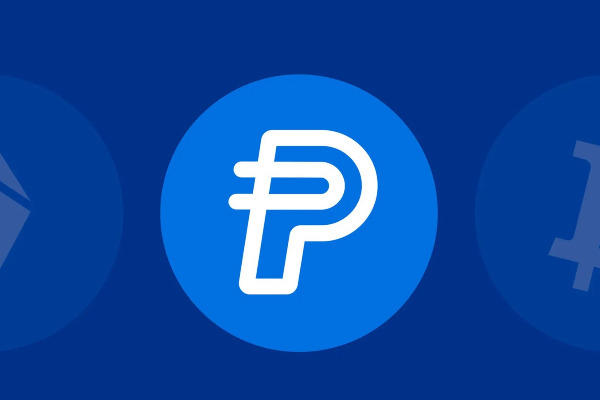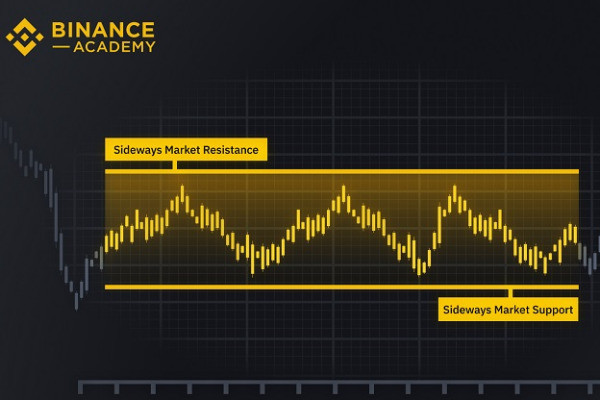Cryptocurrency exit scams happen more often than you think. Spotting these red flags can save you from being a victim of said fraud.
The popularity of cryptocurrency encourages many people to try their luck by investing in it. Unfortunately, many of them have little to no knowledge when it comes to the industry.
Because of that, they become easy prey for scammers. Among many scams, a cryptocurrency exit scam is one of the hardest to spot, especially for newcomers.
Here are some red flags to recognize so you can protect yourself from cryptocurrency exit scams:
- Absurd credibility: if the team has a questionable background, be careful. That can be a red flag of cryptocurrency exit scams.
- Unattainable objectives: for example, promise a steady daily return.
- Suspect white paper: doesn't clearly explain how the project is designed and developed.
- Absence of a functional model: not having a working model proves that the promotor is not serious
- Overblown advertising: usually, they promote it as a new ICOs by lesser-known founders.
Check the following article for a more complete explanation.
1. Questionable Credibility
The number one factor in choosing the right crypto project is the credibility of the team behind said project. Before investing your hard-earned money in an ICO that may look promising, you should verify the credentials of the team behind it.
If the team has a questionable background, be careful. That can be a red flag of cryptocurrency exit scams. Thus, make sure to investigate further about their credibility before investing and check out their work experiences or their background in the crypto industry.
More experienced scammers usually claim that their projects are being supported by professionals in crypto projects. Make sure to check their LinkedIn profile and find out if they really listed the projects on their bio.
If they don't, it can be a red flag. It's time to move on and find another project to invest in.
People often associate social media with credibility. While in some cases that might be true, keep in mind that it can be a counterfeit.
Things like tweets, likes, even followers can be bought to build fake online credibility. So, it's better not to rely on social media too much when you are investing in an ICO project. It's better to do a manual check on the promoter's background.
2. Unrealistic Goals
Most scammers tried to lure inexperienced traders by offering tempting return projects. The would-be victims like to invest in cryptocurrency hoping to gain more profit with little funds.
What you should pay attention to is that if a crypto projects promise a steady daily return of 5%, you should be skeptical about it.
That's because the crypto market has high volatility, so there is no way to make sure traders will gain steady profit every day.
An unrealistic goal like that can be a red flag of cryptocurrency exit scams. Some Ponzi schemes pretending to be a crypto project might use the same m.o. as well.
In that case, they usually encourage traders to find new members to invest in the projects. Bitconnect is a good example of it, as it acted as a Bitcoin lending solution promising monthly returns of 40%.
Ethereum co-founder Vitalik Buterin called it a Ponzi scheme, and eventually, the U.S. authorities investigated it and demanded that it halt its operations in 2018.
3. Dubious White Paper
A white paper is an informational document issued by a company to promote or highlight a product or services they provide or plan to provide. It's often designed for business-to-business marketing purposes, for example between manufacturer and wholesaler.
In a crypto project, the white paper explains the purpose and technology behind it. They usually provide all information to convince potential crypto investors to purchase the cryptocurrency.
Conveniently, a white paper can be a way to spot a cryptocurrency exit scam. If the white paper doesn't clearly explain how the project is designed and developed, that can be a potential red flag for fraud.
Sometimes, a con artist will copy a white paper from other successful projects so it will look more believable for potential investors. Always be careful and make sure to examine thoroughly before investing.
4. Lack of Working Model
A working model can be a way to determine whether a project is a scam or not. Find out if a crypto project has a proper working model or not.
If it's a concept only with a non-existent product, there is a chance it might be a cryptocurrency exit scam. A promoter who wants to raise millions of dollars should prove that their project is worth investing in.
Having a working model proves that the promotor is serious about their crypto project.
5. Exaggerated Promotions
Just because it's a fraud, doesn't mean they will be secretive about it. After all, their main goal is to get as much money as possible, so it's important that they reach a lot of people.
In fact, excessive promotions can be a red flag of cryptocurrency exit scams. It's not odd for scammers to promote their 'project' as an ad in printed media.
Usually, they promote it as a new ICOs by lesser-known founders. That being said, doesn't mean that all ICOs promotions are a scam.
Popular Cases of Crypto Exit Scam
Cryptocurrency exit scams happen more often than you think they would. Some of them have caused all clients involved to lose their money. These are some crypto exit scam incidents that happened in the past:
1. Plus Token
Plus Token is a Ponzi scheme disguised as a cryptocurrency that had major followers in Korea and China. They lure unsuspecting victims by promising high returns with low investments.
They also 'developed' cryptocurrency products such as Plus Token Wallet and exchange to appear more credible. But, the returns are generated by dividing more recent investments for older members.

Despite the obvious red flags, this so-called token managed to run for over a year with more than 100,000 users. The problem began to rise when plenty of investors had difficulties withdrawing their profits in June 2019.
It got worse when the whole team behind the project disappeared with $2.9 million in their pockets. By July 2020, around 109 individuals were arrested by the Ministry of Public Security in China due to their connections with this scheme.
2. Loopx
LoopX is another cryptocurrency exit scam that caused massive losses for many investors. LoopX aimed to create a trading algorithm to maximize investment profits.
Since its first emergence, this project has shown many red flags. For example, they declare consistent high returns for all investors in their project, which is very questionable and impossible to do.

This promising deal had beguiled many novice traders to invest. In fact, LoopX managed to run 5 ICOs at the same time in order to 'fund' their projects.
Eventually, they disappeared without a trace along with the money. Even their company websites and social media were nowhere to be found. The damage is estimated to be around $4.5 million.
3. Bistane
Bistane started as a crypto exchange based in Ireland. This exchange gained its popularity as an early provider that allowed exchange with Ripple (XRP).
It was founded in 2016, and for a few years, it managed to run smoothly. By 2019, Bistane had 246,000 users with a daily trading volume of around $7 million.
Around May the same year, users started having difficulties withdrawing. In the following month, this exchange vanished along with their emails and social media accounts.
Until today, no one knows how much loss they caused. Most users reported that they lost at least $5,000, while some claimed to have lost $150,000 in crypto holdings.
4. Centra
Centra is a Miami-based company that launched an ICO project in 2017 to create a cryptocurrency debit card. They claim that their ICO has gained support from Visa and Mastercard, as well as celebrities like Floyd Mayweather and DJ Khaled.
With promising and almost too good to be true premises, Centra managed to gain trust from a lot of gullible investors. They raised around $32 million.

Suspicions began to arise in March 2018, when Centra's bank account was constantly being emptied. Then most of the employees related to this project disappear.
Finally, in April, the two founders of Centra were arrested and charged with fraud. The worst part? Their ICO project was never supported by Visa or Mastercard.
5. Pure Bit
Pure Bit was a cryptocurrency exit scam from South Korea. Their ICO project gained favor really fast and managed to collect $30 million to create their own crypto exchange.
They continued this con for about two months. After they decided that they have enough funds, they evaporated into thin air, taking all of their investors' money without any semblance of responsibility.

Bottom Line
Among other types of fraud, cryptocurrency exit scams are one of the hardest to spot. It mostly preys on gullible traders with little to no knowledge about cryptocurrency.
There are some ways to protect yourself from these scams, and the most important thing to do is to check whether the team involved in the project is credible or not.
Always be careful if the project offers a high return investment that is too good to be true. Learn from other scam incidents and notice the patterns.
Although most exit scams come in a form of ICO projects, that doesn't mean all projects are fake. There are some successful ICO projects to prove that sometimes they are worth to invest in.

 Dedicated FREE FOREX VPS
Dedicated FREE FOREX VPS Free FOREX Virtual Private Server
Free FOREX Virtual Private Server MT4 Demo Contest, Get $500
MT4 Demo Contest, Get $500 Sign Up for an Account, Claim 60% Deposit Bonus
Sign Up for an Account, Claim 60% Deposit Bonus Free MT4/MT5 VPS 2024
Free MT4/MT5 VPS 2024 Send E-mail and Get Free Merchandise
Send E-mail and Get Free Merchandise $1K Refer a Friend Bonus for Pepperstone Pro clients
$1K Refer a Friend Bonus for Pepperstone Pro clients Maximize Your Earnings with 100% Deposit bonus
Maximize Your Earnings with 100% Deposit bonus Trade to Win, $5,000 Monthly Demo Contest
Trade to Win, $5,000 Monthly Demo Contest Claim 30% + 15% Deposit Bonus from LiteFinance
Claim 30% + 15% Deposit Bonus from LiteFinance







 Bitcoin
Bitcoin Ethereum
Ethereum Tether
Tether BNB
BNB Solana
Solana USDC
USDC XRP
XRP Dogecoin
Dogecoin Toncoin
Toncoin Cardano
Cardano